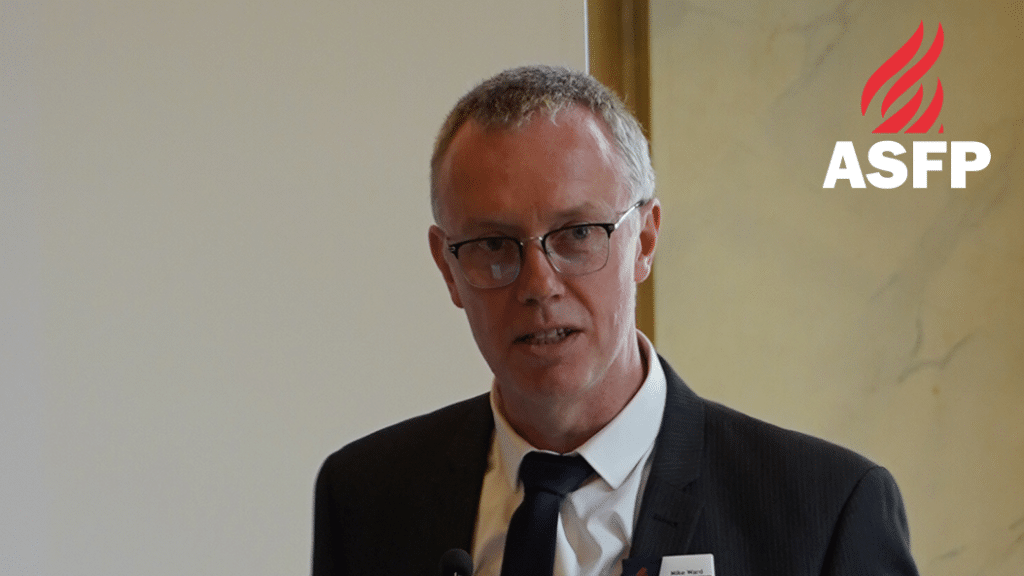IFSJ Influencer Insight: Mike Ward, Managing Director of the Association for Specialist Fire Protection
- December 20, 2023
- 12:01 pm


Iain Hoey
Share this content
‘True growth only happens when you use what you’ve learnt to create change.’
Across all professions and trades, the UK construction industry is without question the largest single employment sector in the country, yet, it has some of the lowest education levels and ill-defined professional development structures. You could say this is because the industry is so fragmented, or that professions and trades evolved at different times and at different rates, creating silos across the sectors. The truth of course, as with all of these issues, is a combination of many contributing factors applied at different times by different individuals and organisations; including respective Governments of the time.
In the case of passive fire protection (PFP), the challenge is exacerbated by the fact that this specialist area of the construction sector cuts right through practically all of the design, engineering, procurement, construction/installation, sign-off and occupation disciplines that are in place, regardless of whether the project be new-build or refurbishment. We’re asking generalists to be specialists and vice-versa for structures from a shed to the Shard, with every stakeholder now being asked to improve and evidence greater levels of competency within their relevant profession or trade.
Without running the risk of a lack of joined up thinking, it has to be the responsibility of the representative associations of such specialist areas, such as PFP, to support the more generalist professions and trades in improving their skills and knowledge and have it contextualised for their specific sector. Architects spend very little time learning how to design in the required application and performance requirements for PFP; main contractors base procurement decisions on more commercial factors rather than purchasing the ‘as specified’ product or system(s); and installers may have been carrying out installations “that way for 20 years”, not realising they may not have been correctly following the manufacturers’ guidelines in respect of the required field of application.
The good news is associations like the ASFP are developing far more comprehensive and robust competency regimes which are aimed to support every stakeholder from design to occupation and every function. Not only that, but the ability to audit company employees’ accrual of skills and knowledge, whether that be continuous professional development (CPD) hours, attained qualifications or holistic participation. The general consensus is that critical professions can’t rely on a degree they achieved years ago and then only develop themselves through CPD. There has to be the requirement and ability to achieve further qualifications in the more specialist areas that are critical to building safety. The mission of ASFP and other associations is to support this learning, after all knowledge on its own is not growth. True growth only happens when you use what you’ve learnt to create change.
About the IFSJ Influencer
Mike Ward joined the Association for Specialist Fire Protection (ASFP) four years ago as Business Manager and became Managing Director in 2023. Ward has 16 years’ experience in the fire sector, including 12 years with Coopers Fire and eight years in the door and window industry. He represents ASFP on various groups working to improve standards and competence within passive fire protection across the built environment.



